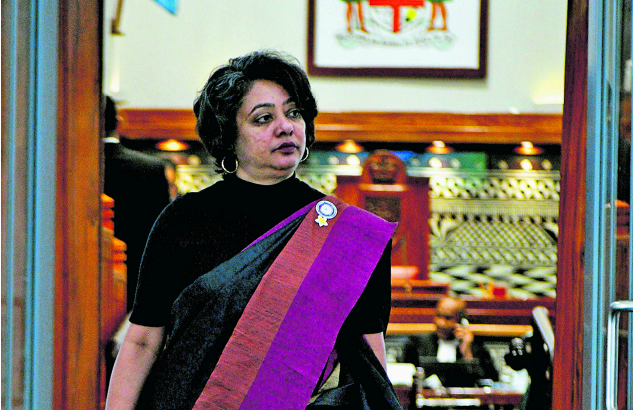THE Fiji Women’s Economic Empowerment National Action Plan (WEE NAP) 2025–2030 is a roadmap for women empowerment.
While laying out the key focus of the new framework in Parliament, Women Minister Sashi Kiran said it set out specific targets to significantly improve women’s participation across important sectors and settings.
“For instance, women’s participation in the labour force, which stands at 32 percent, is projected to reach 60 per cent by 2030,” she said.
“Similarly, the share of women owning registered micro, small, and medium enterprises (MSMEs), currently at 19 per cent is targeted to rise to 50 percent by 2029.
“In leadership, the National Development Plan seeks to elevate women’s representation in Parliament from 10 percent to 30 percent while increasing their presence on non-commercial boards from 27 percent and on commercial boards from 19 percent to 50 percent.
“The NDP prioritises advancing gender parity in education, aiming to increase female enrolment in tertiary Science, Technology, Engineering, and Mathematics (STEM) courses from 25 percent to 50 percent by 2029.”
Ms Kiran said the WEE NAP provided a strategic framework for advancing the goals of NDP across its pillars and key targets on women’s economic empowerment, delivering tangible outcomes through a two-fold approach.
“First, it emphasises on individual and collective women’s economic empowerment, including micro-level initiatives and community actions.
“Second, it prioritises the transformation of structural and systemic inequalities in economic policies, budgets, and investments through gender mainstreaming and gender responsive planning and budgeting (GRPB) and the strengthening of gender data and statistics.
“The WEE NAP strives to create an enabling environment where women and girls, in all their diversities, can fully participate, have their contributions recognised, and thrive — driving the nation’s economic growth and long-term resilience.”

